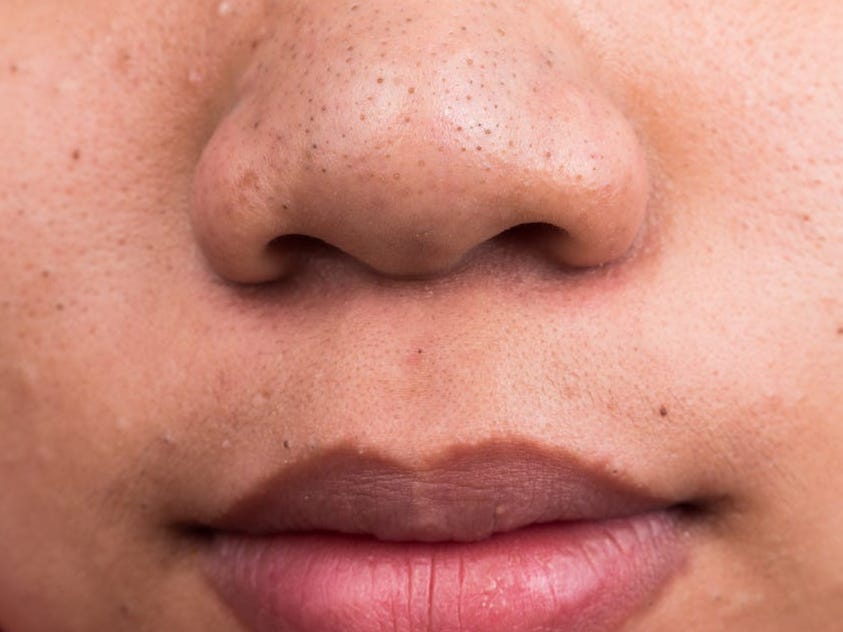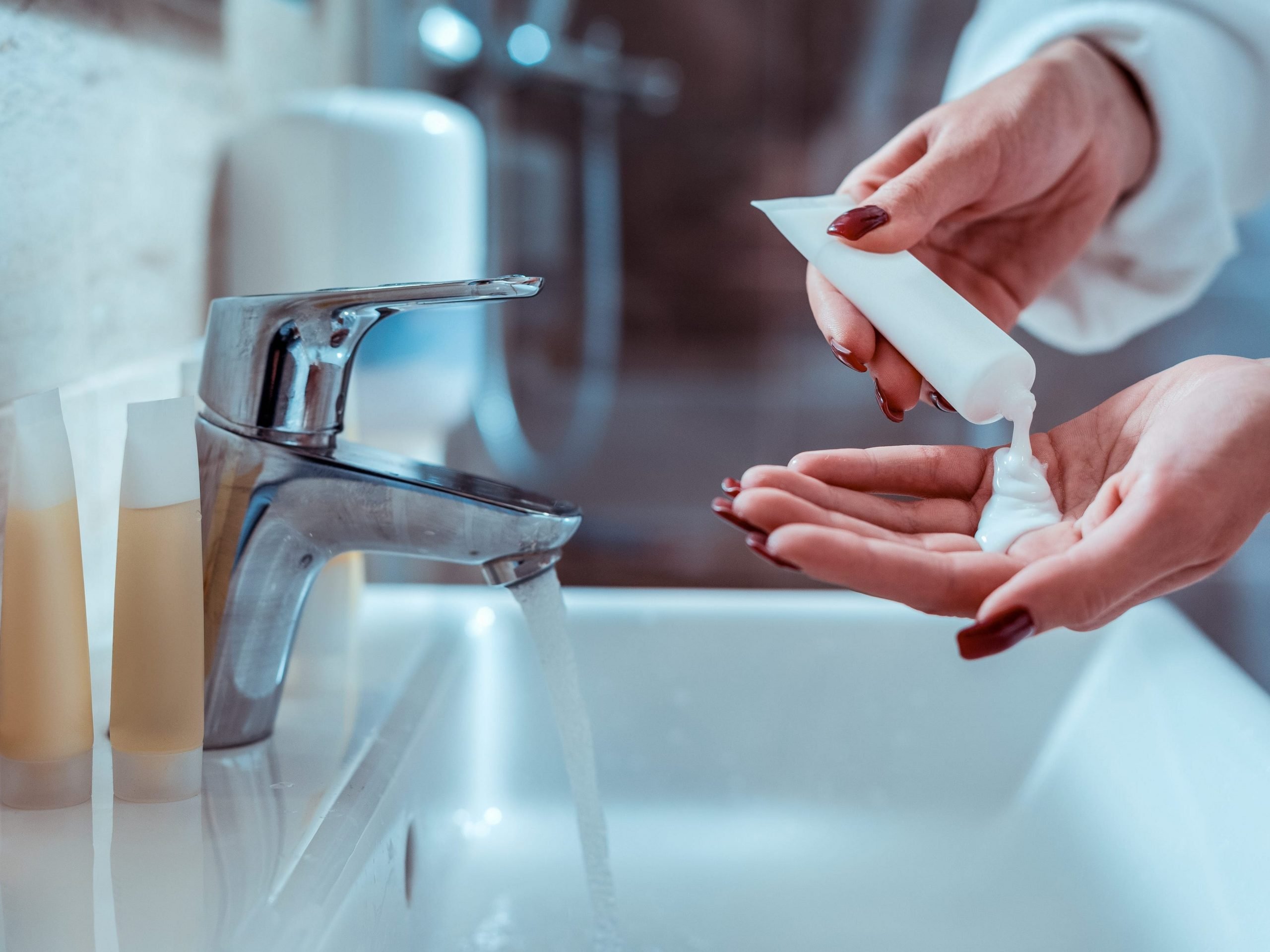
ThamKC/Shutterstock
- Blackheads can appear on the nose because of bacteria, and they can clog your pores.
- They're technically a type of acne, and with the right treatments, you can get rid of them for good.
- Proper exfoliation or a trip to the dermatologist can help with blackhead removal.
Blackheads – those little dark spots – are seemingly impossible to get rid of, and they always seem to crop up in the middle of the face, especially on the nose.
Insider spoke with a dermatologist to find out exactly what these blackheads are and the best way to get rid of them.
The blackheads on your nose are probably a form of acne that's caused by oil buildup
Papri Sarkar, a Massachusetts-based dermatologist, told Insider that blackheads (also known as comedones) are actually a type of acne.
"They're clogged pores or hair follicles that collect sebum (the natural oil that the glands on our face make), dirt, skin cells, and bacteria," she said. "They are more likely to form on the nose because the nose has lots of glands."
Sarkar noted that not every black spot on your nose is a blackhead, though. Some might be sebaceous filaments.
"Sebaceous filaments are in the lining of your pores and help sebum get out of the pore and lubricate your skin," she told Insider. "Sebaceous filaments can become visible if they fill with fats and oils and appear dark. They're more linear and easier to extract than blackheads."
But blackheads are difficult to extract at home because they're underneath the skin.
"Because blackheads are hard and trapped inside pores they can't be 'scrubbed away' or washed off," Sarkar said. "Most often, they need extraction."
But even if they're extracted, they could keep coming back because your nose - with all of its glands - will continue to excrete oil.
Sarkar said it's possible to get rid of blackheads, but it'll take patience

YAKOBCHUK VIACHESLAV/Shutterstock
"If you have true blackheads, keeping your pores from getting clogged will help to prevent them," she said. "The simplest way to do this is to make sure you wash your face once a day, especially if you're sweaty."
Exfoliating can also help clear out clogged pores. The dermatologist recommended using a chemical exfoliant or a physical one, like a washcloth.
For chemical exfoliants, she highlighted glycolic acid, salicylic acid, and retinoids, which are "vitamin A derivatives and cause cell turnover (or exfoliate) so you're less likely to get dead skin cells clogging your pores."
Sarkar added that a benzoyl peroxide "goes a bit deeper and has antibacterial properties, too."
Keep in mind that these treatments can be drying or irritating.
"Make sure you tailor your cleansing and moisturizing to account for that," she told Insider. "If skin gets too dry, it is thought to produce more oil which can put you in a cycle of dry and oily patchy skin, with acne to boot."
But if you're tired of seeing blackheads on your nose and want to get rid of them fast, visit a dermatologist
Although at-home treatments and prevention measures can be effective if you're using the right products, going to a dermatologist to get your blackheads professionally removed will be a quicker process.
"Because blackheads are like little cysts, they can be extracted," Sarkar told Insider. "The safest way to do this is at your dermatologist's office so it's clean and produces less inflammation when you're treating them."
She added that increased inflammation from trying to extract blackheads yourself can lead to more blackheads, acne, or scarring.